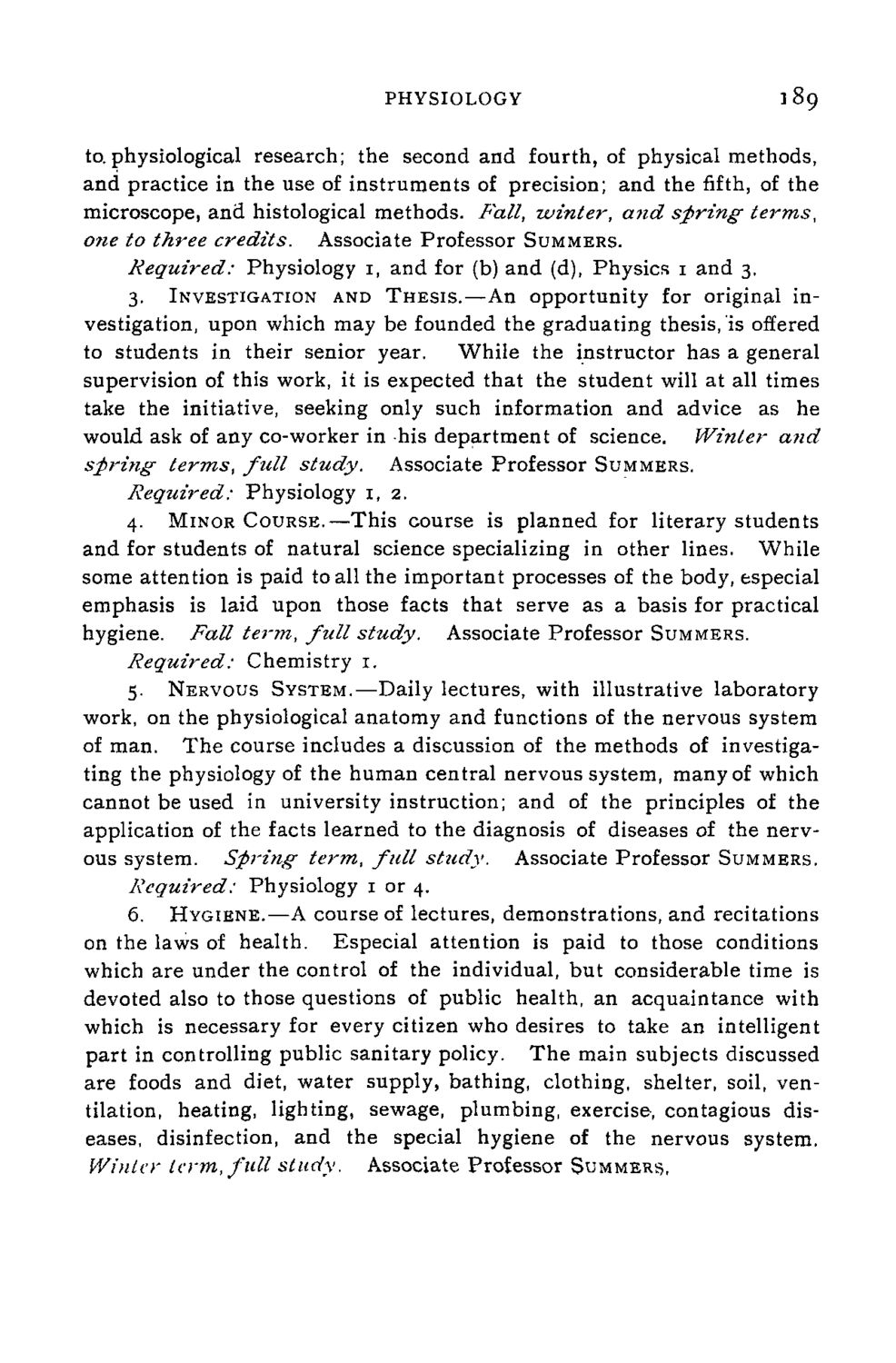| |
| |
Caption: Course Catalog - 1896-1897
This is a reduced-resolution page image for fast online browsing.

EXTRACTED TEXT FROM PAGE:
PHYSIOLOGY 189 to. physiological research; the second and fourth, of physical methods, and practice in the use of instruments of precision; and the fifth, of the microscope, and histological methods. Fall, winter, and spring terms, one to three credits. Associate Professor SUMMERS. Required: Physiology 1, and for (b) and (d), Physics 1 and 3. 3. INVESTIGATION AND THESIS.—An opportunity for original in- vestigation, upon which may be founded the graduating thesis, is offered to students in their senior year. While the instructor has a general supervision of this work, it is expected that the student will at all times take the initiative, seeking only such information and advice as he would ask of any co-worker in his department of science. Winter and spring terms, full study. Associate Professor SUMMERS. Required: Physiology 1, 2. 4. MINOR COURSE.—This course is planned for literary students and for students of natural science specializing in other lines. While some attention is paid to all the important processes of the body, especial emphasis is laid upon those facts that serve as a basis for practical hygiene. Fall term, full study. Associate Professor SUMMERS. Required: Chemistry 1. 5. NERVOUS SYSTEM.—Daily lectures, with illustrative laboratory work, on the physiological anatomy and functions of the nervous system of man. The course includes a discussion of the methods of investigating the physiology of the human central nervous system, many of which cannot be used in university instruction; and of the principles of the application of the facts learned to the diagnosis of diseases of the nervous system. Spring term, full sttidy. Associate Professor SUMMERS. Required: Physiology 1 or 4. 6. HYGIENE.—A course of lectures, demonstrations, and recitations on the laws of health. Especial attention is paid to those conditions which are under the control of the individual, but considerable time is devoted also to those questions of public health, an acquaintance with which is necessary for every citizen who desires to take an intelligent part in controlling public sanitary policy. The main subjects discussed are foods and diet, water supply, bathing, clothing, shelter, soil, ventilation, heating, lighting, sewage, plumbing, exercise, contagious diseases, disinfection, and the special hygiene of the nervous system. Winter term, full study. Associate Professor SUMMERS,
| |